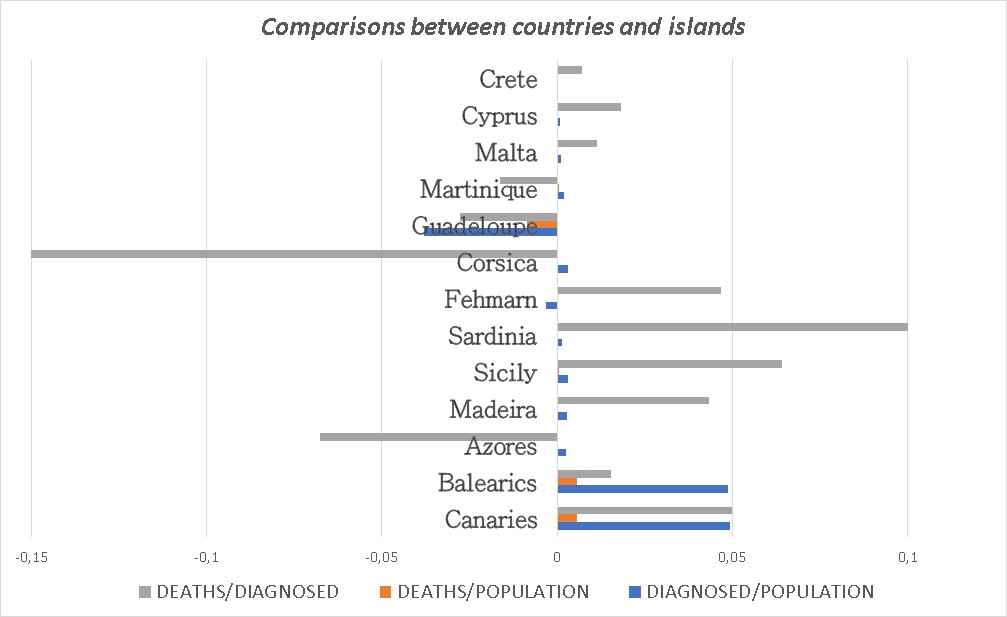Our interconnected world means that responding to these crises and disasters is going to require a transformation in all components of the economic systems globally to ensure a more resilient future.
Based on official statistics, we make three comparisons between 13 islands and their respective national mainlands, firstly, by calculating three different ratios for each island and each mainland and, secondly, by calculating the difference between the ratios of the islands and their respective national mainlands.
When calculating the division between deaths and diagnosed people, we see that Sardinia, Sicily, Fehmarn, Madeira and The Canary Islands show fewer diagnosed deaths than their national mainlands. Meanwhile, Corsica, The Azores, Guadeloupe and Martinique show a worse result than their mainlands in terms of diagnosed deaths.
Secondly, while indicators for the Balearic and Canary Islands show fewer deaths per inhabitant, Guadeloupe has the worst figures. The Balearics and The Canary Islands have been more effective in detecting infected people, while Guadeloupe has the lowest level of diagnosed people per inhabitant. It is important to note that not only is the number of infected people lower on the islands than on their respective national mainlands, but the probability of recovery from the disease is also substantially higher.
The positive results could be due to the existence of a younger population on some islands. It is also probable that, as the incidence of the pandemic was lower on the islands, the local healthcare systems may have put more effort into saving lives after the diagnosis of the disease.
Although Cyprus (17 deaths) and Malta (7 deaths) are island nations and, hence, these comparisons are impossible, we can draw the tentative conclusion that their pandemic figures are far better than expected. On this basis, one might hypothesise that these kinds of territories function as a protective shield against the pandemic.
There remain some unanswered questions that future research works should clarify, such as what are the determinants of these more positive figures? Why are islands more resistant to Covid19? Concerning the pandemic tragedy, there is no doubt that the benefits of living on islands exceed the disadvantages.
The Soclimpact project does not touch on this issue, but we do need to give careful thought to these results. While it may be too early to celebrate if we consider how many people are continuing to suffer, we are glad to know that our targeted islands seem to have been doing well enough to resist and contain the virus.

